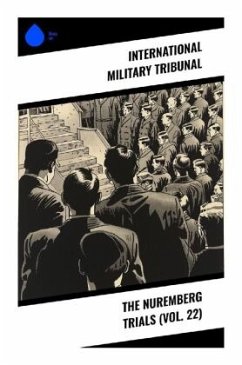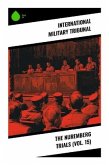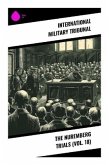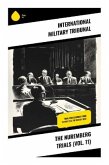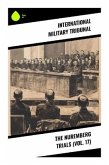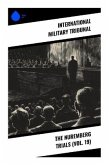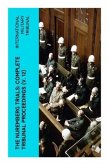The Nuremberg Trials (Vol. 22) constitutes a crucial installment in the documentation of one of the most significant legal proceedings in modern history. This volume intricately details the post-World War II trials where key Nazi leaders were held accountable for war crimes, crimes against humanity, and genocide. Employing a meticulous chronological narrative, the text incorporates firsthand testimonies, legal arguments, and judicial procedures, offering a profound exploration of the principles of justice and accountability in the face of unprecedented human cruelty. The volume is notable for its dispassionate yet assertive legal prose, reflecting the tense atmosphere of its historical context and the imperative to establish a moral and legal precedent following the atrocities of the Holocaust and the global conflict. The International Military Tribunal, comprised of judges and prosecutors from the United States, Soviet Union, United Kingdom, and France, undertook this monumentaltask, motivated by a collective desire to address the moral vacuum that war leaves in its wake. This Trial marked a pivotal moment in international law, forging mechanisms that aimed to prevent future atrocities and punish those responsible. The Tribunal's commitment to a fair trial philosophy, despite the overwhelming emotions surrounding the proceedings, underscores the historical significance and legacy of these trials. For scholars, historians, and general readers alike, this volume is not only a historical account but also an essential resource for understanding the evolution of international law. It invites readers to grapple with the complexities of justice in a world still haunted by conflict and moral ambiguity. The lessons drawn from The Nuremberg Trials remain relevant, echoing the necessity for accountability and remembrance in an ever-changing global landscape.
Bitte wählen Sie Ihr Anliegen aus.
Rechnungen
Retourenschein anfordern
Bestellstatus
Storno

